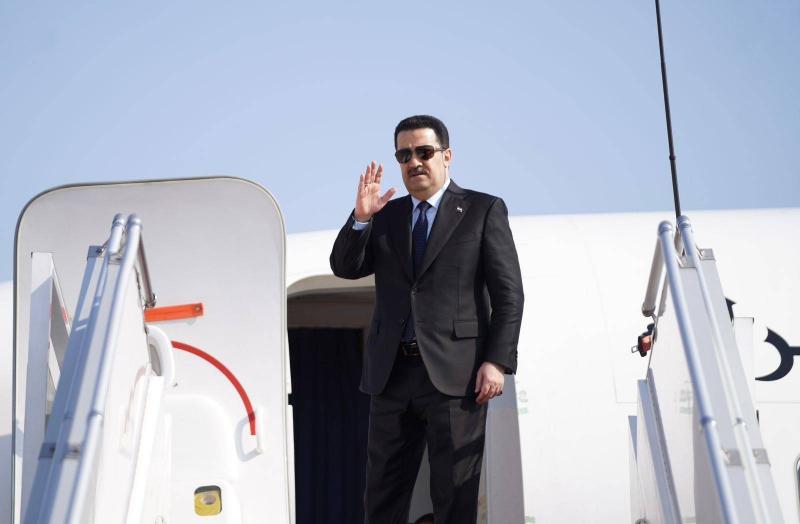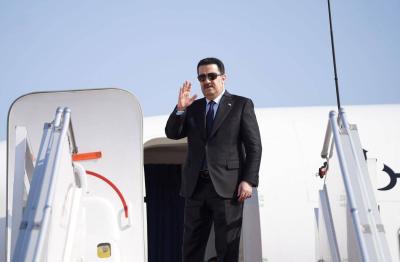The Strategic Framework Agreement is a security agreement between the Government of Iraq and the United States. This agreement outlines the "provisions and main requirements that govern the temporary presence of U.S. military forces in Iraq, their activities there, and their withdrawal from Iraq."
**Key Provisions of the Agreement:**
- All U.S. forces must withdraw from all Iraqi territory no later than December 31, 2011.
- The United States recognizes the sovereign right of the Government of Iraq to request the departure of U.S. forces at any time.
- The Government of Iraq acknowledges the sovereign right of the United States to withdraw its forces from Iraq at any time.
- Both parties agree to establish mechanisms and arrangements to reduce the number of U.S. forces during specified timeframes, with agreement on the locations where these forces will be stationed.
The importance of activating the provisions of the Strategic Framework Agreement is highlighted as a crucial part of the government's program, which focuses on economic sector reforms, one of the agreement's components. The Iraqi Prime Minister, before leaving Baghdad for the United States, stated that "the goal of the visit to Washington is to advance the relationship between the two countries to a new phase and reactivate the Strategic Framework Agreement," noting that "the agreement aligns with the government program and its economic reforms."
He indicated that the visit would witness the first meeting of the joint coordination committee tasked with implementing the Strategic Framework Agreement, which has not convened since the agreement's ratification. The committee's meeting will discuss topics such as trade, energy, investment, education, transport, culture, anti-corruption, and asset recovery.
**Economic and Investment Focus**
According to the Prime Minister's investment advisor, Mohammed Al-Najjar, "the Prime Minister's visit to the United States is primarily economic and investment-focused, aimed at solidifying Iraqi-American relations concerning economic, agricultural, and industrial issues through joint investment cooperation." He emphasized that "energy is the main attraction for the United States, in addition to its interest in agricultural systems and hydrogen industrialization, among others."
Al-Najjar added that "the visit will open several investment files in smart agriculture, industry, and technology." He mentioned bureaucratic obstacles that hinder companies from entering the Iraqi market, some of which can be solved with direct intervention, while others require legal changes. The government is currently studying a series of changes to eliminate investment barriers, involving various laws, with more than six laws under review for obstructive parts which will be presented to the Parliament.
**Investment in Iraq**
Hassan Al-Khafaji, head of the Parliamentary Investment and Development Committee, noted that "recently, more than 50 reputable American companies, including Boeing and General Electric, expressed interest in entering the industrial sector, and discussions with the Prime Minister were positive and opened doors for investment.” He continued, "The committee met with company owners alongside the Council’s presidency to discuss investment in Iraq, particularly in energy, minerals, and several industrial matters."
Al-Khafaji confirmed that companies faced bureaucratic challenges regarding visas, and the committee raised these issues with the Prime Minister and the Minister of Interior, who provided facilitation regarding visa processing. The Prime Minister expressed readiness to follow up on investment issues with the executive authorities, and the measures are progressing well.
**Banking Sector**
Economic expert Abdul Rahman Al-Mashhadani mentioned that "a group of experts met with Prime Minister Mohammed Shia' al-Sudani and discussed his visit to the United States, confirming the priority of addressing banking matters with the American side." He noted that "the Prime Minister emphasized priorities regarding the bank that provides the ration card, which is one of the priorities."
He indicated that "the Prime Minister will take along a high-level delegation of businessmen to meet with American businessmen to showcase Iraqi investment opportunities and how to capitalize on them."
**Construction Industries**
Al-Mashhadani also pointed out that "the Prime Minister has priorities in addition to clean energy, specifically in construction industries, especially following his decision to build new housing complexes using locally manufactured materials, which demands many companies for cement, reinforcement bars, glass, and several factories contributing to constructing housing complexes."
**Economic Openness**
Economic expert Ala Al-Fahd stated that "the Iraqi government seeks economic openness with all countries, especially in investment and energy, considering the United States as a key partner with the Iraqi government. There is a strategic agreement between the two parties, thus, the Prime Minister aims to focus on energy, services, and other economic issues during this period that has created a sense of trust."
Al-Fahd noted that "these issues will be prominent since the United States has reputable companies in providing energy, investment, transportation, housing, and even armament and supplying Iraqi forces." He emphasized that "the Prime Minister is clear in his governmental program about wanting openness with all countries."
**Important Partnerships**
He mentioned that "American companies, including General Electric, will have a broader role in energy investment, in addition to other American companies and investment firms in the gas sector. We expect the visit to lead to important partnerships, particularly as the United States supports Iraq's partnership with Gulf countries through electrical connectivity with Saudi Arabia and Jordan, indicating that America views Iraq as a primary economic partner, based on the seriousness of American companies entering Iraq for substantial and effective investment in the coming phase."




